Family of Asia Bibi appeal for help over blasphemy charge
- Published
Shaimaa Khalil speaks to the family of Asia Bibi: ''We get death threats... we live in hiding''
Asia Bibi, a poor, illiterate woman from Pakistan's rural Punjab, has been on death row for almost five years after being accused of insulting the Prophet Muhammad, a charge she vehemently denies. In a rare interview, her husband has appealed for help from the international community.
In Pakistan, the mere accusation of blasphemy can be a death sentence. It is also enough to make the whole family a target.
This is why Asia Bibi's family members have been in hiding for nearly five years. Soon after her conviction, crowds took to the streets calling for her death, some threatening to kill her if she ever got out.
Asia's husband Ashiq Massih and her five children have been on the run since she was arrested.
He said the danger of someone killing any of them hung over him every day.
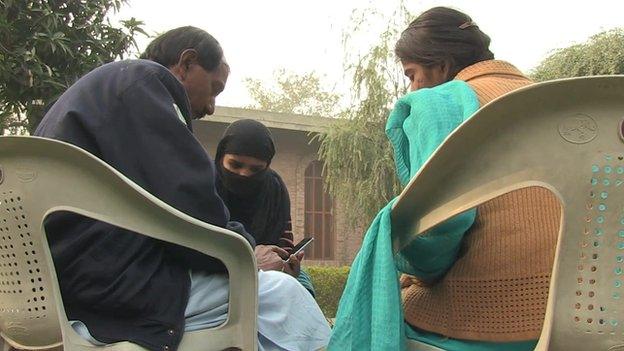
Her family now have to remember Asia through photos
"We get death threats," he said, looking anxious and weary. "We can't stay in one place for very long.
"We live in hiding. It's very hard especially for the children. They can't settle down or study," he added. "It's not a normal life to be constantly living in fear."
Asia's troubles began when she was picking berries in her village of Itan Wali in Punjab.
She had an argument with a group of Muslim women when she went to get water from the well. They said the water was unclean because a Christian woman had touched it.
Days later the women claimed she had insulted the Prophet Muhammad and Asia was pursued by a mob.
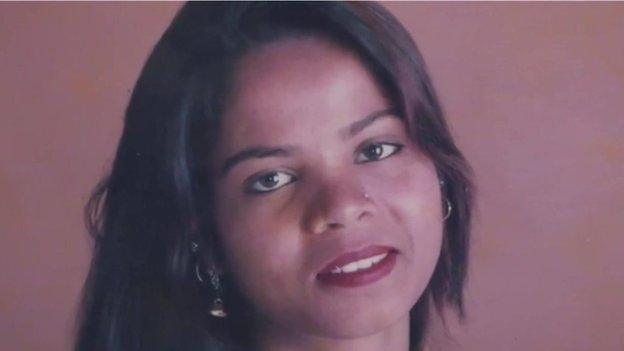
Asia Bibi was picking berries when a row broke out
"They went to fields and beat her and tore her clothes. They beat her in front of us," her 14-year-old daughter Esham said, trying to fight back tears.
"We were crying, begging them to let her go and stop hitting her. They did that for almost one hour.
"They also hit me when I tried to defend her," Esham continued.
Esham said that at the time she could not understand why this was happening to her mother, and was told later that it was about blasphemy.
"I try to forget the way she was beaten and tortured that day," Esham said.
Asia's story generated a debate across Pakistan about reforming the country's blasphemy law. But it is a very dangerous issue here that many politicians prefer to avoid.
Two prominent politicians who spoke out against it were killed.
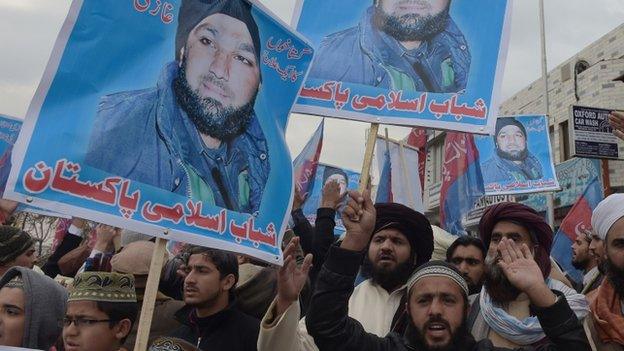
The killer Mumtaz Qadri is seen as a hero by many in Pakistan
Salman Taseer, the governor of Punjab, was shot by his own bodyguard because he defended Asia and said she should be pardoned, and the killer is now considered a hero by many in Pakistan.
Not long afterwards, minorities minister Shahbaz Bhatti was assassinated for speaking out against the blasphemy law.
Blasphemy is a capital offence in Pakistan - it often provokes violent attacks and, in many cases, murders. At least 50 people accused of blasphemy were killed before their trials were completed.
Pastor Arif Khokar, who has led a poor Christian congregation for years in Punjab, was accused of burning pages of the Koran after a row with a neighbour. He too vehemently denies the charge of blasphemy.
"I felt like I was going to have a heart attack," he told the BBC. "I panicked when the police told me. I never thought this could happen to me."
Pastor Khokar is now on bail - unlike many blasphemy cases neither he nor his family have been attacked but he says they live in fear every day.
"We know the punishment of this accusation and what happens to people - especially Christians. We live under so much tension."
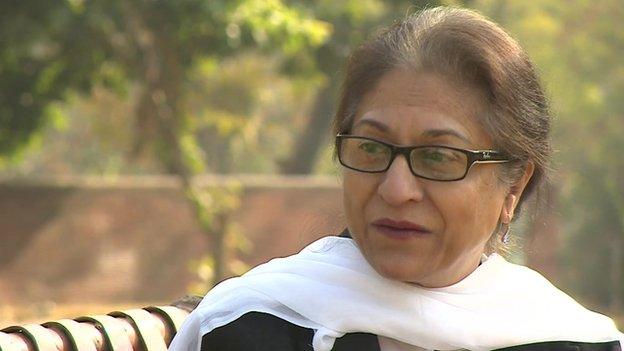
Blasphemy lawyer Asma Jahanghir says she has been threatened regularly
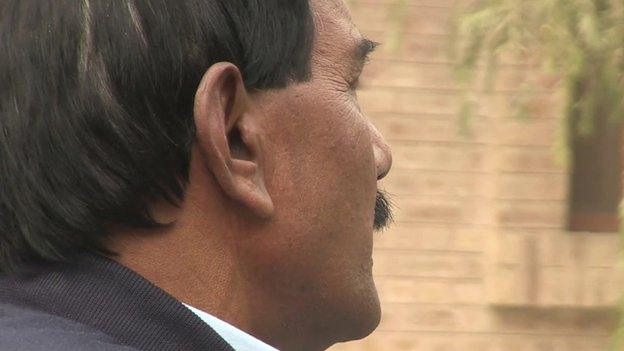
Asia's husband says he and his daughters now fear for their lives too
The lawyers and judges who handle these cases are often threatened and attacked. Asma Jahanghir, who has worked on blasphemy cases for more than 20 years, says she has been targeted regularly.
"Religious intolerance is something that people are taking advantage of, and the courts continue to be scared," she said.
"Because you can accuse someone of blasphemy, you then gather a crowd, threaten judges, threaten lawyers and spew anger."
Asma Jahangir said she thought it was unlikely that Asia Bibi would be pardoned because of the outrage it may cause.
Asia's husband said the blasphemy law had "destroyed our lives".
"I call on the international community to help. And I ask the Pakistani government to review this law," he said.
Her daughters visit her from time to time but seeing her in jail is never easy.
"We saw her last December," Esham said. "We asked the warden to open the cell so we can hug her, but he didn't. My mother hugged and kissed us from behind the bars. She cried deep from her heart."
- Published30 January 2015

- Published23 November 2010
- Published17 November 2010
- Published12 November 2010